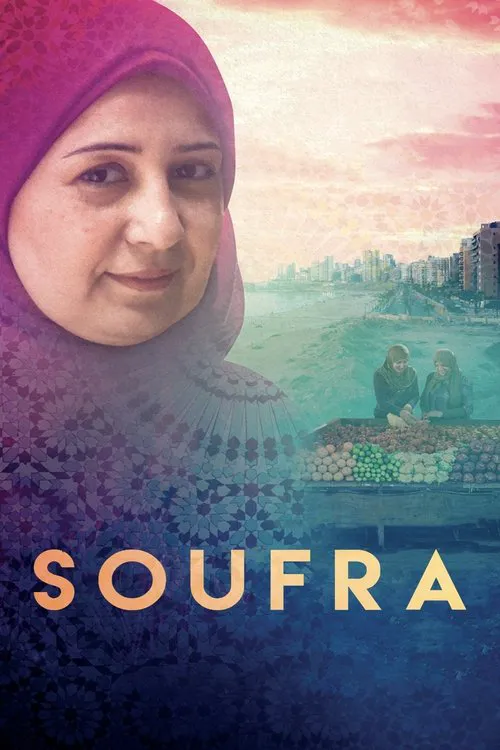Soufra

Plot
In the cramped and impoverished Burj El Barajneh refugee camp, nestled just south of Beirut, Lebanon, a remarkable story of resilience, determination, and hope blossoms amidst adversity. "Soufra" chronicles the journey of Mariam Shaar, a young, intrepid social entrepreneur who has overcome the numerous obstacles in her path to not only create a successful catering business but also become a beacon of unity and empowerment for the women in the camp. Mariam, a self-proclaimed "taste-testing refugee," was born and raised in the Burj El Barajneh camp. Growing up amidst the harsh realities of a displaced community, where access to basic necessities, including food and water, was an ongoing struggle, Mariam's entrepreneurial spirit began to stir. She dreamed of forging a better life for herself and the women around her, a testament to the indomitable human spirit. As Mariam navigates her journey, we meet her fellow refugee women - each with her own story of displacement, loss, and hardship - who share this camp as their home. There's Raghda, the no-nonsense matriarch; Fatmeh, a kind-hearted caregiver; and Nada, a quiet yet talented artist. These women, like Mariam, are bound by a common thread - a yearning for dignity, respect, and the chance to rebuild their lives. Mariam's vision of creating a culinary empire, aptly named "Soufra," begins with a small catering enterprise. Using her limited resources, she concocted a makeshift kitchen within the cramped camp. The first few months were a trial by fire as she faced numerous setbacks, including equipment failures, financial struggles, and internal conflicts. Despite the obstacles, Mariam persisted, fuelled by her unwavering determination and the unshakeable conviction that her business would flourish. As "Soufra" begins to gain momentum, Mariam's confidence grows. Her menu, a blend of traditional Lebanese cuisine with innovative twists, attracts a loyal customer base within the camp and beyond. Encouraged by this early success, she sets her sights higher, conceiving a plan to expand her operation with a custom-built food truck. This move promises not only increased exposure but also the potential to employ her fellow refugee women, providing them with a steady income and a platform to develop valuable skills. However, the road to achieving this vision is fraught with challenges. The food truck, built from scratch by a sympathetic local carpenter, is a makeshift affair, subject to the whims of its unreliable engine. Furthermore, the refugee women, who had initially warmed up to the idea of joining the food truck venture, begin to show signs of disillusionment, their doubts fueled by fears of increased responsibility, lack of control, and uncertainty about the venture's future. Mariam's response is characteristic of her resolve. With unwavering empathy, she takes the time to understand and address the concerns of her team members. In this crucial moment, she demonstrates the very qualities that would make her a successful leader: her capacity for active listening, her willingness to adapt, and her deep understanding of the women's needs. As a result, a renewed sense of purpose and commitment among the team ensues, forging an unbreakable bond among them. "Soulfra's" ultimate triumph is as much a tribute to Mariam's perseverance as it is to the collective strength of the refugee women who stand alongside her. As their food truck gains popularity, attracting a diverse clientele that transcends the boundaries of the camp, the women's confidence grows. They begin to see themselves as valuable assets, empowered by their roles in "Soufra." They start to participate actively in discussions about menu development, customer relations, and financial planning. This newfound sense of ownership helps them transcend their roles as mere laborers, elevating them to co-owners of a thriving business. As Mariam's story unfolds, her journey comes to be defined by two intertwined themes: the struggle for empowerment and the beauty of community. "Soufra" shows us that, even in the face of adversity, we have the capacity to choose our path forward. For Mariam and her fellow refugee women, that path has been illuminated by a passion for entrepreneurship, a shared sense of purpose, and an unwavering faith in the transformative potential of their collective efforts.
Reviews
Recommendations




